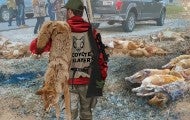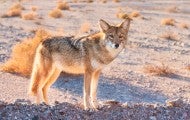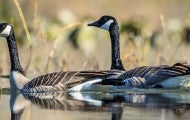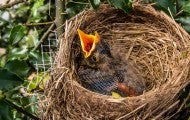Showing 9 of 9 results
Today, the New York state legislature passed a bill that ends inhumane wildlife killing contests, in which participants compete to kill the most, the heaviest and the smallest animals for cash and prizes. In 2018 and 2020, the Humane Society of the United States released undercover investigations...
Rounding up and killing entire flocks of geese has become an all-too-common (and temporary) fix in many communities. Besides being inhumane, this also leaves room for a new flock to just move right in. Geese shouldn’t be killed for doing what comes naturally, especially when long-term, effective and...






